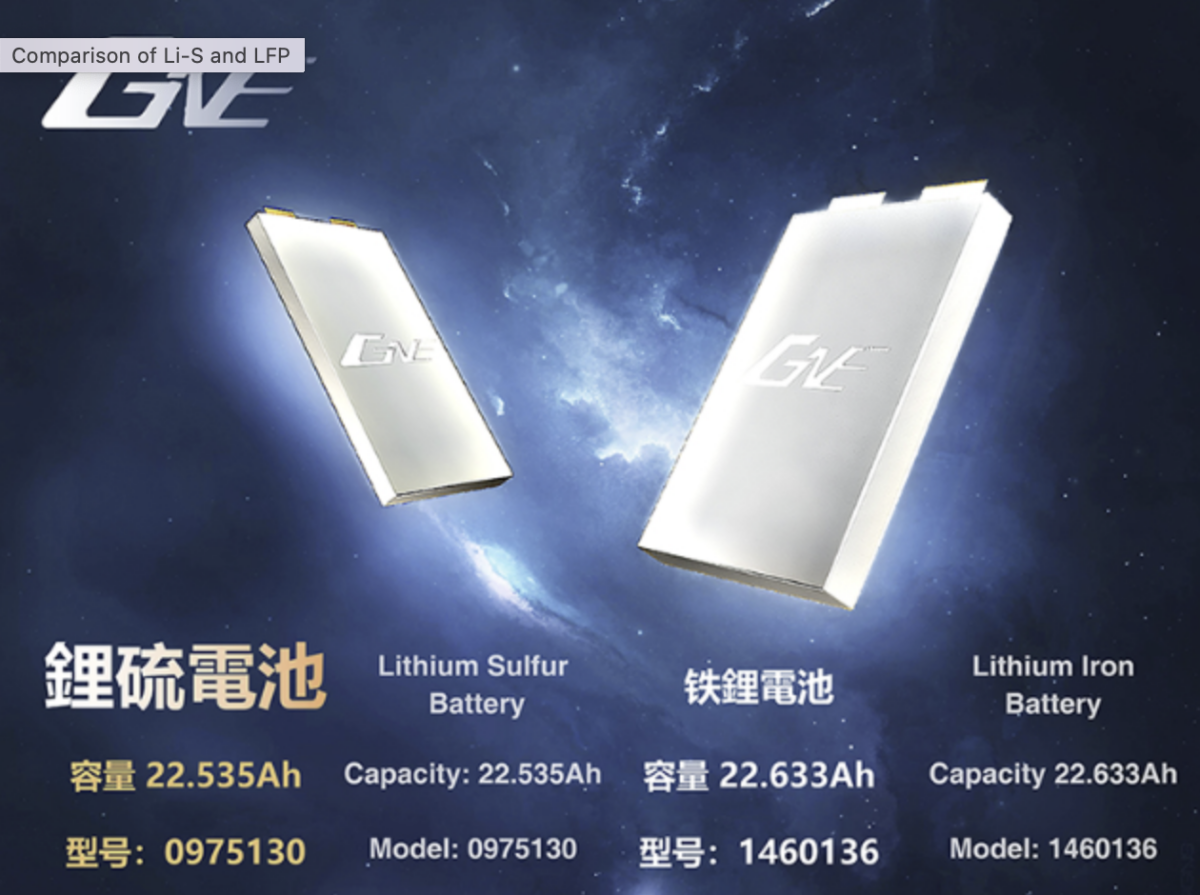From pv magazine ESS News
China’s General New Energy (GNE) has recently announced a significant breakthrough in lithium-sulfur (Li-S) battery technology, unveiling a prototype with an energy density of 700Wh/kg.
According to GNE, this new battery not only far exceeds the energy density of existing lithium-ion batteries but also offers substantial improvements in both mileage and safety.
Lithium-sulfur batteries, which use sulfur as the cathode and lithium metal as the anode, represent a promising alternative to traditional lithium-ion batteries. Theoretically, Li-S batteries can achieve energy densities of up to 2,600Wh/kg, which is over five times that of their lithium-ion counterparts. Furthermore, sulfur is abundant, inexpensive, and environmentally friendly, giving Li-S batteries a cost and sustainability edge.
However, Li-S batteries face significant technical challenges. Sulfur’s poor electrical conductivity hinders the battery’s high-rate performance, while the “shuttle effect” of lithium polysulfides dissolving in the electrolyte leads to increased electrolyte viscosity, reduced ion conductivity, and accelerated capacity decay. Furthermore, the considerable density difference between sulfur and lithium sulfide causes volume shrinkage during charge-discharge cycles, compromising structural stability.
To continue reading, please visit our pv magazine ESS News website.
This content is protected by copyright and may not be reused. If you want to cooperate with us and would like to reuse some of our content, please contact: editors@pv-magazine.com.



By submitting this form you agree to pv magazine using your data for the purposes of publishing your comment.
Your personal data will only be disclosed or otherwise transmitted to third parties for the purposes of spam filtering or if this is necessary for technical maintenance of the website. Any other transfer to third parties will not take place unless this is justified on the basis of applicable data protection regulations or if pv magazine is legally obliged to do so.
You may revoke this consent at any time with effect for the future, in which case your personal data will be deleted immediately. Otherwise, your data will be deleted if pv magazine has processed your request or the purpose of data storage is fulfilled.
Further information on data privacy can be found in our Data Protection Policy.